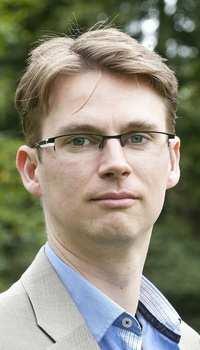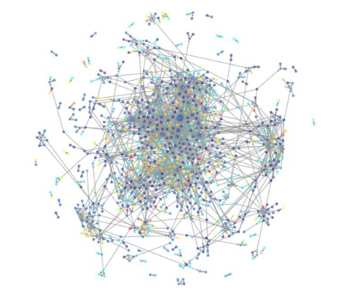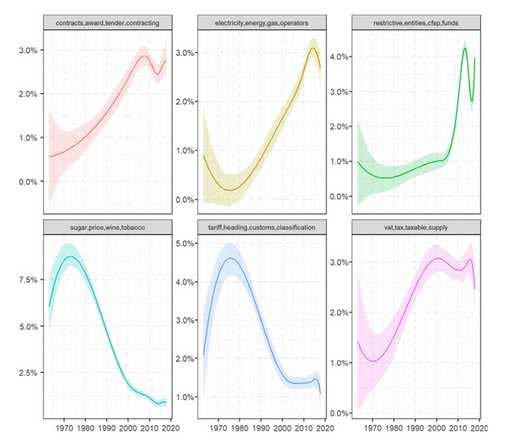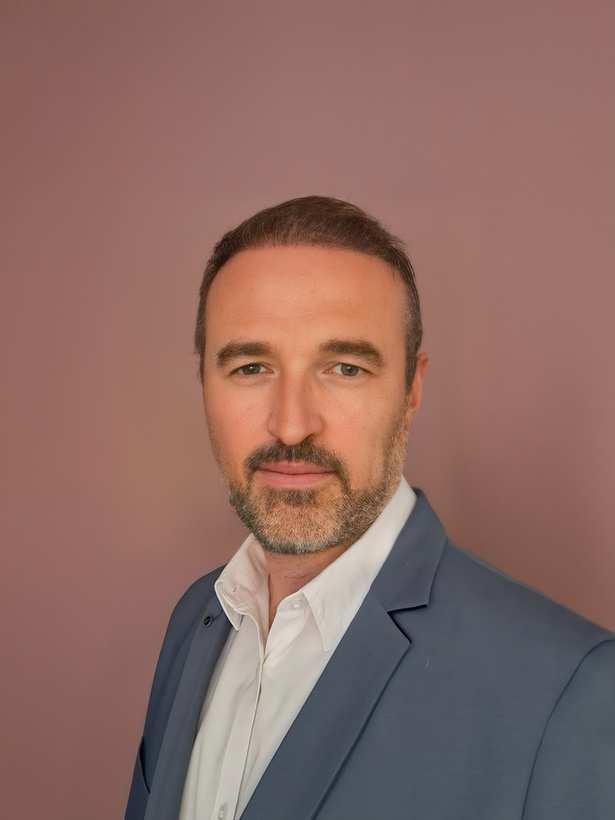|
 PROFESSOR GIJS VAN DIJCK integrates legal, empirical, and computational analysis in order to improve the description, application, understanding, and evaluation of the law. He has taught courses on tort law, contract law, property law, empirical legal research, and computational legal research. Gijs has published in top journals including the Journal of Empirical Legal Studies and the Oxford Journal of Legal Studies. He has been a speaker at various events, including ones at Oxford, Harvard, Yale, Duke and Cornell. He was a visiting scholar at Stanford University in 2011. PROFESSOR GIJS VAN DIJCK integrates legal, empirical, and computational analysis in order to improve the description, application, understanding, and evaluation of the law. He has taught courses on tort law, contract law, property law, empirical legal research, and computational legal research. Gijs has published in top journals including the Journal of Empirical Legal Studies and the Oxford Journal of Legal Studies. He has been a speaker at various events, including ones at Oxford, Harvard, Yale, Duke and Cornell. He was a visiting scholar at Stanford University in 2011.
SUMMER SCHOOL PROGRAM
TUESDAY, JUNE 24
Session #1 – Introduction, Basics and Overview (9 am – 12 pm)
In the first session, we will discuss how to enter the domain of empirical legal research. The instructors will share what they consider the potential, challenges, and their experiences
regarding conducting empirical research in the legal domain.
The second part of the session will be devoted to the basics of empirical research. It will discuss the principles (reliability, validity), research designs (e.g., descriptive, causal), and data collection methods (inquiry, observation, analysis of existing data) of empirical legal research. Participants will then be invited to complete a questionnaire as well as several decision-making exercises. Depending on the pace of the session, the instructors may conduct an interactive game simulating a “dialogue of judges”.
Session #2 – Group Project & Introduction to Python Programming for Legal Research (1.30 pm – 4.30 pm)
Groups will be formed for the group project. The substantive part of this session will focus on an introduction to programming in Python. Various statistical packages are available for conducting empirical research. Python has become the most popular programming language to collect, curate, format, and analyse data. Participants are introduced to the basics of the Python language via exercises and assignments. This session will lay the foundation for data analysis later in the course.
WEDNESDAY, JUNE 25
Session #3 – Network Analysis (9 am – 12 pm)
This session focuses on network analysis. Network analysis allows modeling and analyzing connections between different entities: citations, individuals, organizations, etc. In this session, like in the legal field more generally, we will focus particularly on case law citations and litigation networks networks of jurists. Network analysis assists in detecting important precedents and (sub)topics in a network of court decisions. Students will practice collecting, formatting, and analysing real-world data using network science techniques.
The instructors will illustrate the methods based on selections from their research.
Session #4 – Experimental and Observational Methods (1.30 pm – 4.30 pm)
This session will be devoted to experiments and observational studies. The randomized trial represents the gold standard in causal inference. Experimental methods are increasingly used in the legal field, notably to evaluate the success of programs or reforms. We will examine different types: vignette experiment, field experiment, and survey. Rulings, statutes, treaties, and most of what we spontaneously think of as legal data, is observational as opposed to experimental. It is often the only available data, but it presents challenges, particularly when identifying causal relations. In this session, we delve deeper into the advantages and limitations of the analysis of observational data and how to analyse data collected with observational analysis. The instructors will illustrate the methods based on selections from their research.
THURSDAY, JUNE 26
Session #5 – Textual Methods (9 am – 12 pm)
Legal data largely come in the form of texts. Advances in automatic text data analysis thusopen up great prospects for empirical legal research. We examine document and topicmodeling techniques and practice several exercises on texts of decisions of the Court ofJustice of the European Union.Large Language Models (LLMs) like ChatGPT are becoming increasingly popular inanalyzing legal texts. In this session, we will explore using LLMs for selected tasks hands-on.
Session #6 – Group projects (1.30 pm – 4.30 pm)
This session is devoted to the group project. In a hands-on manner, a research plan will bedesigned and drafted. The instructors will provide feedback on the research designs andenvisioned analysis.
FRIDAY, JUNE 27
Session #7 – Data Collection Exercise (9 am – 10 pm)
Students will participate in a collective data collection exercise. They will look for the rawdata and encode it into a structured machine-readable format following a codebook. Theresults will be presented later during the Summer School.
Session #8 – Group project (10.15 am – 12 pm)
This session is devoted to the group project. The research will be further designed andcarried out. The instructors will provide feedback on the research designs and analysis.
Session #9 – Legal Data Analysis (1.30 pm – 4.30 pm)
Your project will, at this point, have reached the stage of where you are exploring datacollection or have started to analyze the data. This session dives deeper into how toconduct empirical analyses. This session will enhance your understanding of which andhow statistical analyses can help improve your analysis. This session covers the basics ofdata analysis, including data harvesting, descriptive statistics, and regression analysis.
SATURDAY, JUNE 28 – SUNDAY, JUNE 29
Session #10 – Work on group project
MONDAY, JUNE 30
Session #11 – Feedback (9 am – 12 pm)
Feedback will be provided by the instructors on the group projects.
Session #12 – Work on group project (1.30 pm – 4.30 pm)
This session will be devoted to finalizing the project.
TUESDAY, JULY 1
Session #13 – Presentations (9 am – 12 pm)
TERMS OF PARTICIPATION
PREREQUISITES
This training programme is specifically designed for lawyers and law students with no experience in empirical research. No specific statistical or mathematical knowledge is required.
Concepts and methods, including Python programming, are introduced in simple and intuitive terms with the help of multiple hands-on exercises. It is important to keep in mind that each session builds on the previous one. Therefore, "à la carte" participation is strongly discouraged.
PRACTICAL INFORMATION
Participants must possess a computer with a stable WiFi connection. In-class exercises will be done through Google Colab. To use it, participants must have a Gmail address.
VENUE
Manufacture des tabacs, 21 allée de Brienne, Toulouse (France)
REGISTRATION FEE : 230 euros
- Registration fees include welcoming dinner, lunches on weekdays, coffee breaks, the closing lunch and a guided tour of the city of Toulouse.
- Registration is free for members of the Toulouse Capitole University. The summer school will be validated as part of the training offered by the doctoral school.
CAPACITY : 25 learners
APPLICATIONS
Applications must be sent to internationalisation@ut-capitole.fr before April 9th 2025 in the form of a CV and a letter setting out your motivation for attending the summer school. An
answer will be provided before the end of April to help you organise your stay in Toulouse.
SUGGESTED ACCOMMODATION
Cité internationale des chercheurs de l'Université de Toulouse: www.en.citeinternationale-toulouse.fr (from 85 euros/night)
Youth Hostel: https://lapetiteaubergedesaintsernin.com/en/hostel-toulouse/ (from 25 euros/night)
Youth Hostel: https://hostel-toulouse-wilson.com/ (from 35 euros/night)
LUNCHES
Lunches will be taken at "the Resto U' Arsenal", except for on Tuesday, July 1, when lunch will be held at the restaurant "Aux Pieds sous la Table"
APPLICATIONS
Applications must be sent to internationalisation@ut-capitole.fr before April 9, 2025 in the form of a CV and a letter setting out your motivation for attending the summer school. An answer will be provided before the mid-April to help you organise your stay in Toulouse.
QUESTIONS
Practical organisation : internationalisation@ut-capitole.fr
Course content : julien.betaille@ut-capitole.fr
|
|





 PROFESSOR GIJS VAN DIJCK integrates legal, empirical, and computational analysis in order to improve the description, application, understanding, and evaluation of the law. He has taught courses on tort law, contract law, property law, empirical legal research, and computational legal research. Gijs has published in top journals including the Journal of Empirical Legal Studies and the Oxford Journal of Legal Studies. He has been a speaker at various events, including ones at Oxford, Harvard, Yale, Duke and Cornell. He was a visiting scholar at Stanford University in 2011.
PROFESSOR GIJS VAN DIJCK integrates legal, empirical, and computational analysis in order to improve the description, application, understanding, and evaluation of the law. He has taught courses on tort law, contract law, property law, empirical legal research, and computational legal research. Gijs has published in top journals including the Journal of Empirical Legal Studies and the Oxford Journal of Legal Studies. He has been a speaker at various events, including ones at Oxford, Harvard, Yale, Duke and Cornell. He was a visiting scholar at Stanford University in 2011.